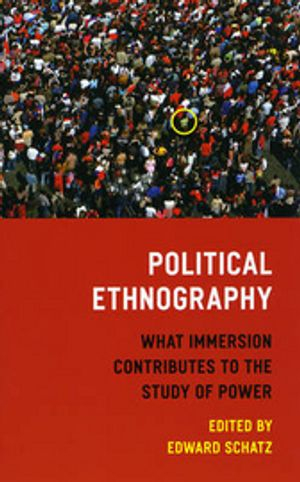

Political Ethnography
- Utgiven: 2009
- ISBN: 9780226736778
- Sidor: 376 st
- Förlag: University of Chicago Press
- Format: Häftad
- Språk: Engelska
Om boken
Scholars of politics have sought in recent years to make the discipline more hospitable to qualitative methods of research. Lauding the results of this effort and highlighting its potential for the future, "Political Ethnography" makes a compelling case for one such method in particular. Ethnography, the contributors amply demonstrate in a wide range of original essays, is uniquely suited for illuminating the study of politics. Situating these pieces within the context of developments in political science, Edward Schatz provides an overarching introduction and substantive prefaces to each of the volume's four sections. The first of these parts addresses the central ontological and epistemological issues raised by ethnographic work, while the second grapples with the reality that all research is conducted from a first-person perspective. The third section goes on to explore how ethnographic research can provide fresh perspectives on such perennial topics as opinion, causality, and power. Concluding that political ethnography can and should play a central role in the field as a whole, the final chapters illuminate the many ways in which ethnographic approaches can enhance, improve, and, in some areas, transform the study of politics.
Åtkomstkoder och digitalt tilläggsmaterial garanteras inte med begagnade böcker
Mer om Political Ethnography (2009)
I oktober 2009 släpptes boken Political Ethnography skriven av Edward Schatz. Den är skriven på engelska och består av 376 sidor. Förlaget bakom boken är University of Chicago Press.
Köp boken Political Ethnography på Studentapan och spara uppåt 33% jämfört med lägsta nypris hos bokhandeln.
Referera till Political Ethnography
Harvard
Schatz, E. (2009). Political Ethnography. University of Chicago Press.
Oxford
Schatz, Edward, Political Ethnography (University of Chicago Press, 2009).
APA
Schatz, E. (2009). Political Ethnography. University of Chicago Press.
Vancouver
Schatz E. Political Ethnography. University of Chicago Press; 2009.



















